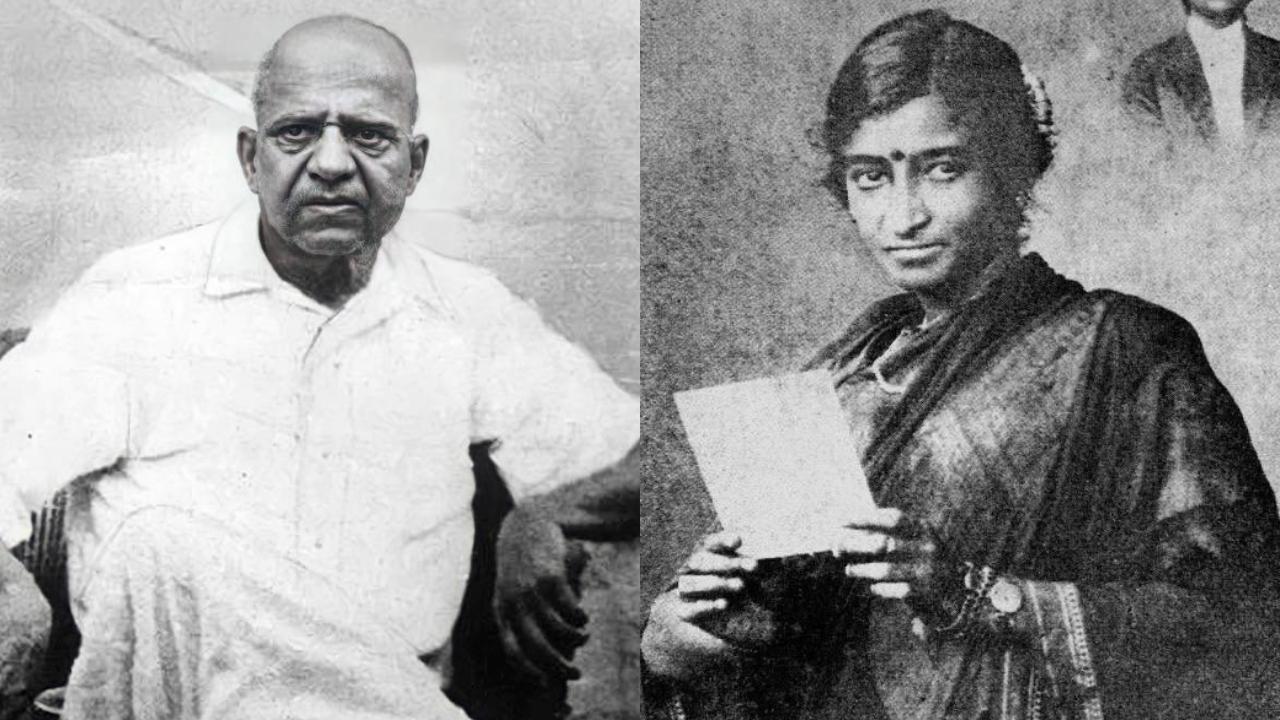Dadasaheb Phalke death anniversary 2024: The creator of India's firs feature film 'Raja Harishchandra', he is also responsible for introducing female actresses on screen

L-Dadasaheb Phalke, R- Kamalabai Gokhale (Pic/Film History Pics X)
Dadasaheb Phalke death anniversary 2024: It's been 80 years since the legendary artist passed away. The multi-talented man is known as the 'Father of Indian cinema' and has played a pivotal role in introducing cinema in India. He was a producer-writer-director and released India's first motion picture named 'Raja Harishchandra' in 1913. It was not easy for him to make India's first cinema and release it in the British Raj when the Europeans were imposing Western cinema in the country.
ADVERTISEMENT
Not just India's first cinema, Phalke played a major role in introducing female actors to the screen. When Phalke was making 'Raja Harishchandra', the idea of having women in front of the camera and performing scenes was unheard of and looked down on. Back then, it was men who would dress up as women to play female characters as was the norm for stage dramas as well.
However, Phalke brought about a change in this mindset by being a pioneer in introducing female actors on screen. For his second silent film titled 'Mohini Bhasmasur' (1913) he offered the role of Parvati to Durgabai Kamat and that of Mohini to her teenage daughter Kamlabai Gokhale. Kamat, who was a single parent, was disowned by her society for taking the role. But she made it possible for women to play leading roles in movies. She is also the great-grandmother of late actor Vikram Gokhale.
Years later, Phalke cast his daughter 'Mandakini Phalke', in 'Lankan Dahan' (1917) 'Shri Krishna Janma' (1918). Phalke's wife Saraswatibai also played a significant role in Indian cinema. She was India's first film editor.
Phalke's path to making India's first film:
While film schools were not big back in the day, Phalke joined JJ School of Art in 1885 and completed one-year course in drawing. Later, he joined Kala Bhavan, the Faculty of Fine Arts, at the Maharaja Sayajirao University of Baroda and completed a course in Oil painting and Watercolor painting in 1890. He also achieved proficiency in architecture and modelling. In the same year, Phalke bought a film camera and started experimenting with photography, processing, and printing. In 1891, Phalke did a six-month course to learn the techniques of preparing half-tone blocks, photo-lithio, and three-colour ceramic photography.
Later, Phalke set up a photo studio called Shri Phalke's Engraving and Photo Printing. Later on, he also took up the job of working at stage curtains for drama organizations. Working in the drama space, he also started getting small roles to play. He also spent some time as a photographer for the Archaeological Survey of India.
After passing through several hurdles, Phalke made his first film 'Raja Harishchandra', premiered at the Olympia Theater in Bombay. It was a movie that did well at the box office and established the film industry.
 Subscribe today by clicking the link and stay updated with the latest news!" Click here!
Subscribe today by clicking the link and stay updated with the latest news!" Click here!







